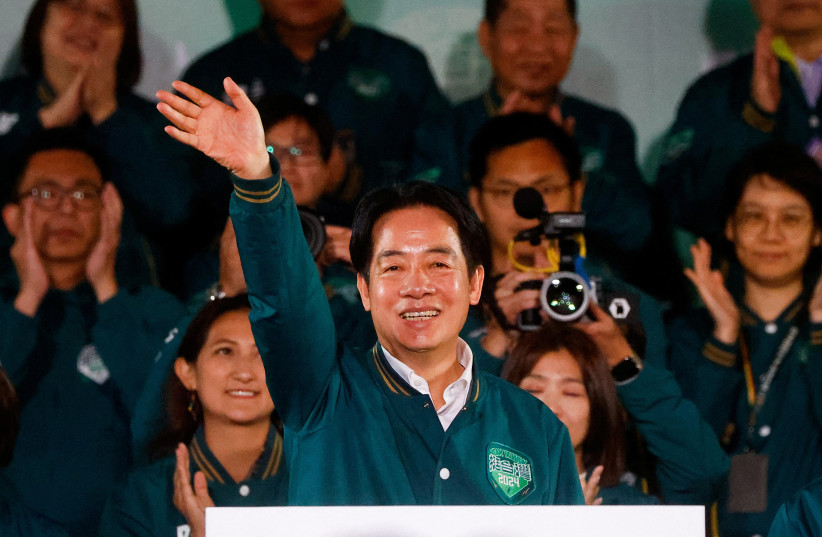US President Joe Biden said on Saturday the United States does not support the independence of Taiwan after Taiwanese voters rebuffed China and gave the ruling party a third presidential term.
Earlier in the day, the Taiwanese ruling Democratic Progressive Party's (DPP) presidential candidate Lai Ching-te came to power, strongly rejecting Chinese pressure to spurn him, and pledged both to stand up to Beijing and seek talks.
"We do not support independence..." Biden said, when asked for reaction to Saturday's elections.
Hours ahead of the polls opening, Washington had warned "it would be unacceptable" for "any" country to interfere in the election.
Taiwan, a neighboring island China claims as its own, has been a democratic success story since holding its first direct presidential election in 1996, the culmination of decades of struggle against authoritarian rule and martial law.

The United States and Taiwan
The United States is Taiwan's most important international backer and arms supplier despite the lack of formal diplomatic ties with the island.
The Biden administration has feared that the election, transition and new administration would escalate conflict with Beijing.
Biden has worked to smooth relations with China, including agreeing to talk through differences on security matters at a California summit with President Xi Jinping in November.
Taiwan's government expects China to attempt to put pressure on its incoming president after the vote, including staging military maneuvers near the island this spring, two senior government officials said. China has never renounced the use of force to bring Taiwan under its control.
In a show of support for the government, Biden plans to dispatch an unofficial delegation to the self-governed island, according to a senior Biden administration official.
The delegation is likely to include some former high-ranking American officials, according to the official, who said the names have not been finalized. Similar delegations have been sent to Taiwan in the past.
China was angered in 2016 when then-President-elect Donald Trump spoke by phone with President Tsai Ing-wen of Taiwan, the first such conversation between US and Taiwan leaders since President Jimmy Carter switched diplomatic recognition from Taiwan to China in 1979.
